Amazon: a network of life beyond the rainforest
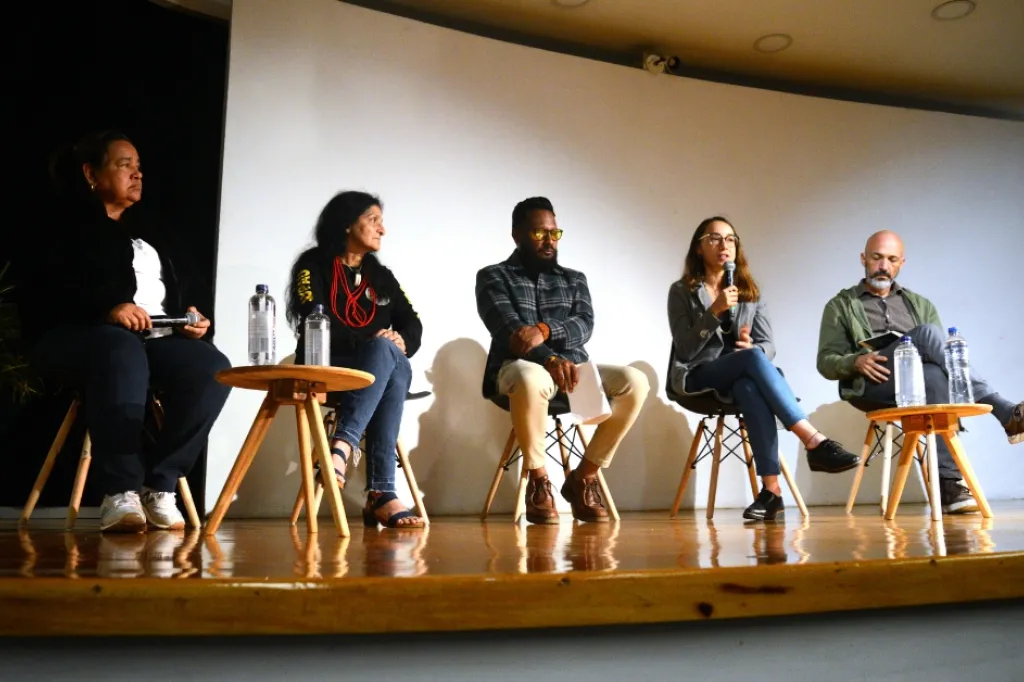
"What is the Amazon? Well, let me tell you, the Amazon is our life, the Amazon is the people, both in the forests and in the cities. Not only the people who live there, but also people like you". This is how Neidinha Bandeira, a Brazilian environmental activist and founder of the Kanindé Ethno-environmental Defense Association, began her intervention in the conversation that took place after the screening of the documentary "The Territory" (2022), of which she is one of the protagonists.
The event, organized by ForumCiv Regional Office for LAC and the digital journal RAYA, took place on Tuesday, October 24 at the Planetarium of Bogota, and was attended by Neidinha, Jani Silva, a woman leader of ADISPA, peasant organization that promotes the Peasant Reserve Zone of the Amazonian Pearl in Puerto Asis, Putumayo, and Linda Gonzalez, anthropologist and researcher of Censat Agua Viva, an environmental NGO with an important trajectory in Colombia.
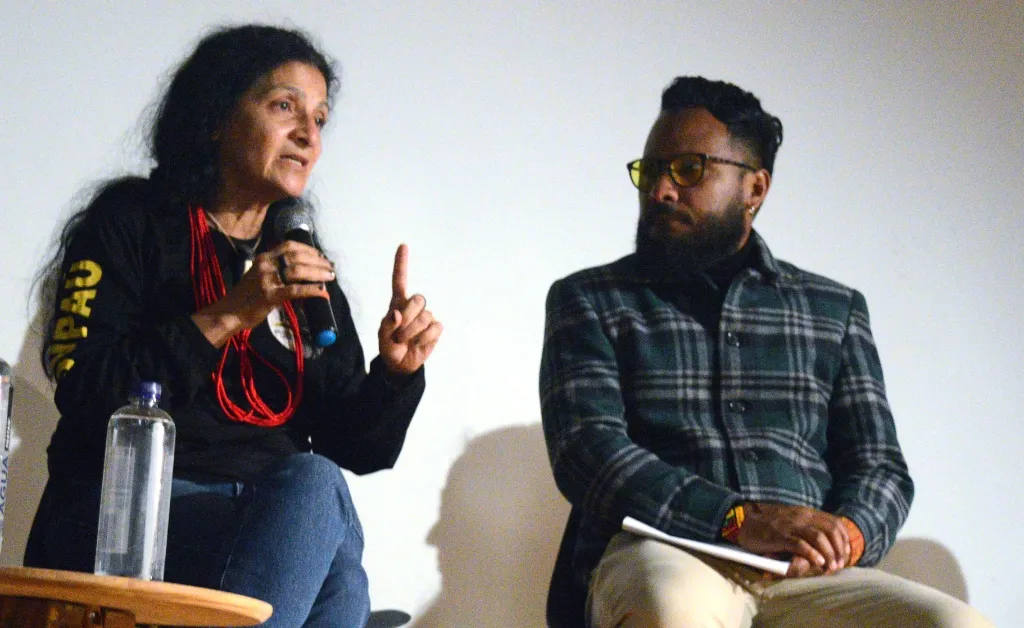
Documentary shines light on deforestation in the Amazon
The documentary powerfully portrays the daily life of a community of the Uru-eu-wau-wau, an indigenous people of Brazil, in the state of Rondônia. The Territory is visually magnetic for its immersion in the juxtaposition between the daily lives and logics of indigenous people, peasants and illegal settlers of the Brazilian Amazon, who have different points of view about the management of the forest and therefore about their relationship with the entity we call or imagine as "the Amazon".
Latin America continues to be one of the most dangerous regions for environmental defenders and organizations
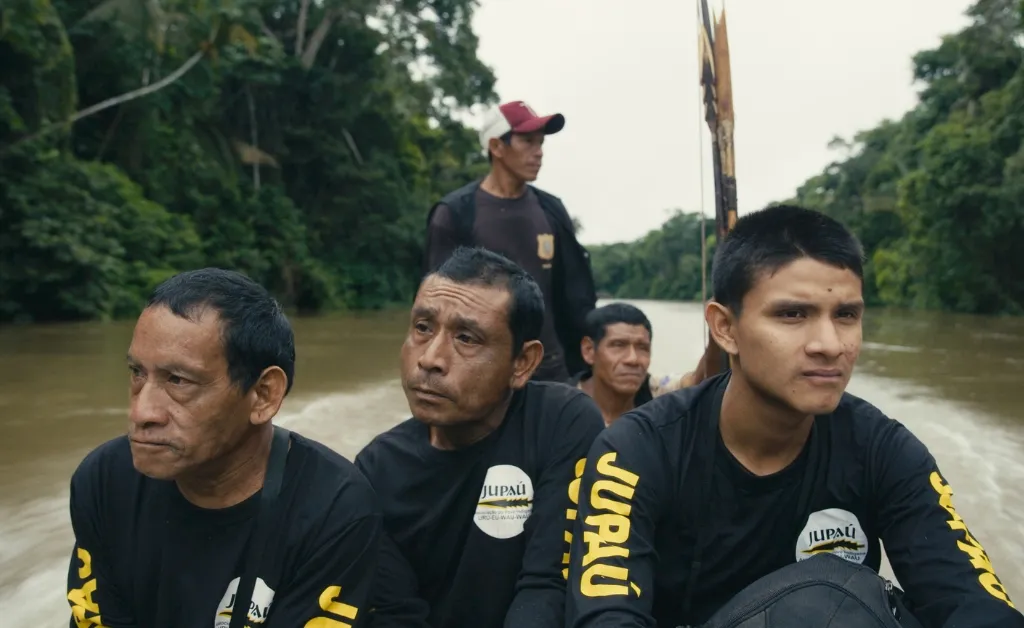
The Amazon region, which is really a set of landscapes (natural, rural and urban), biomes and ecosystems, interconnected and impacted by different factors and phenomena, all of them with a human footprint, is considered one of the "hotspots" with essential relevance for the protection of the planet's biodiversity. But it could also be said that it is a "hot spot" in a colloquial sense, due to the high levels of conflict, social inequality, multidimensional poverty, environmental problems, illegal economies, just to mention a few factors.
Latin America continues to be one of the most dangerous regions for environmental defenders and organizations, with Colombia and Brazil being the countries where most environmental defenders have been killed in recent years. Those who defend and promote environmental protection face stigmatization and criminalization by different actors.
And if those who exercise these leadership roles are women, the stigmatizations and attacks become particularly sharp and sensitive, with patterns and attitudes marked by the patriarchal society in which we live. Threats in writing or phone calls, surveillance, incursions by armed persons into their workplaces or homes, harassment of their children. This is the situation of risk that women like Neidinha and Jani have lived permanently for years.
"It is something that kills you little by little, with the worry of which of your family members they are going to murder with you when they finally do it, or try it again," says Jani, who for several years has suffered different attempts to end her life, threatened by different actors in the territory. "Why, if what I am doing is to protect the forest, the environment, for the wellbeing of other people, why is this happening to me? That question drills my head permanently".
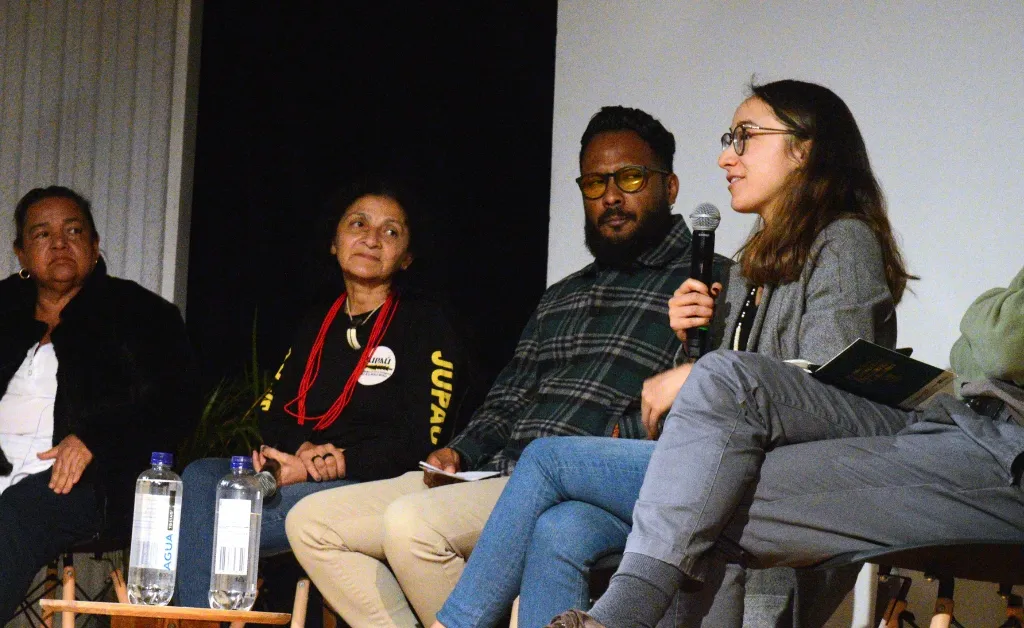
Local knowledge is crucial for equitable natural resource management
For those who live in the Amazon region, the pressure is given by the importance that these territories have for the planet, which can be understood as a set of contexts that allow life, but at the same time can be understood - especially from the logic of the global economic system - as a pool of resources (to be extracted or produced, such as minerals or industrially produced food) and services (such as carbon sequestration).
As mentioned by Linda from Censat, the multilateral agenda towards the Amazon region on the part of the countries that share it, which recently showed its updated configuration with the Belem Amazon Summit and its prior meeting in Leticia (Colombia), has not managed to link the community dynamics of the populations that inhabit this region, nor the practices and ancestral knowledge of its inhabitants, which can certainly offer solid and effective ways to achieve the changes required for sustainability.
And here it is important to emphasize that although when we speak of ancestry we mainly consider the knowledge of the indigenous peoples who have maintained a millenary relationship with the forests and its inhabitants of all species, it is also relevant to make visible the traditional and popular knowledge that comes from an Amazonian peasant culture, in any case impregnated with traces of wisdom and indigenous beliefs.
The peasant who is a small producer and who often just wants to cut down a tree to build his little house, is usually the one who is singled out as a deforester and predator of the rainforest
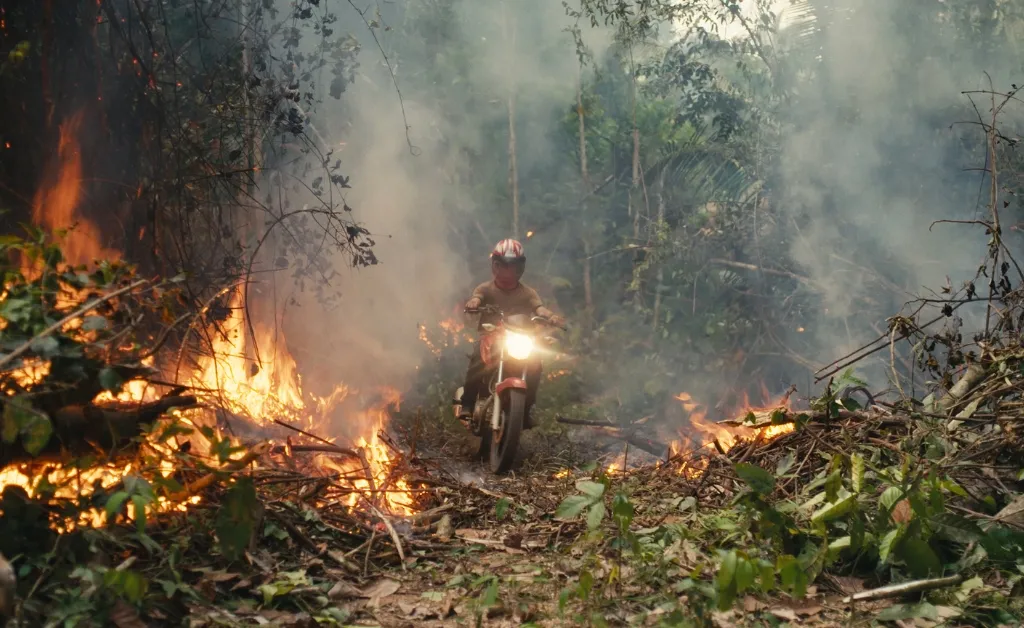
"The peasant who is a small producer and who often just wants to cut down a tree to build his little house, is usually the one who is singled out as a deforester and predator of the rainforest, and is thus unjustly prosecuted," says Jani. "And those who really deforest and destroy the rainforest are the large producers with their monocultures, and the oil companies with their platforms that pollute the rivers and destroy the wetlands; but since they have legal status and supposedly bring development, they do all this with impunity".
"For us peasants, the Amazon is not only life, but also health," Jani continues, "because it offers us medicines; it is culture and love, because being there makes you feel alive. The Amazon is like a mother who gives generously, but at the same time it is like a son, who must be cared for and protected to do well, and that is why for us the bet is on agricultural production with silvopastoral systems, with fewer animals, with conservation and reforestation, with environmental monitoring and with promoters led by young people."
This brings us back to Neidinha's initial reflection that the Amazon extends as a territory beyond a macro-basin of forests, ancestral communities, flying rivers (massive vapor currents), and all kinds of expressions of life; it also connects in a network of people who, from their conscious consumption practices (anywhere on the planet), in some way also defend this territory of territories. In this sense, as Neidinha, Jani and Linda highlight, education is a fundamental component to achieve these transformations.
And under this logic, effective communication and awareness-raising tools such as the documentary The Territory are very powerful in achieving, for example, that the effects of deforestation in the Amazon region get under the viewer's skin and touch the hearts and minds, something that numbers and statistical data can hardly achieve.
"It is necessary that we talk with those sitting on the opposite side of the table; for a long time I refused to do so, but I learned that it is the only way we can advance in a transformation of attitudes to protect the rainforest. If we continue to talk only among ourselves, those on the same side, we will continue to see how the warriors kill each other, we will continue to not be able to sleep peacefully in our homes, we will continue to see the forests fall," says Neidinha, with her heart in her hand.
"We have to talk to those sitting on the other chairs around the table, and also dare to occupy those places, and only then we will be able to change things. And if we are not able to make change happen, we will have to rethink our strategies to see how else we can continue our struggle,” she says.
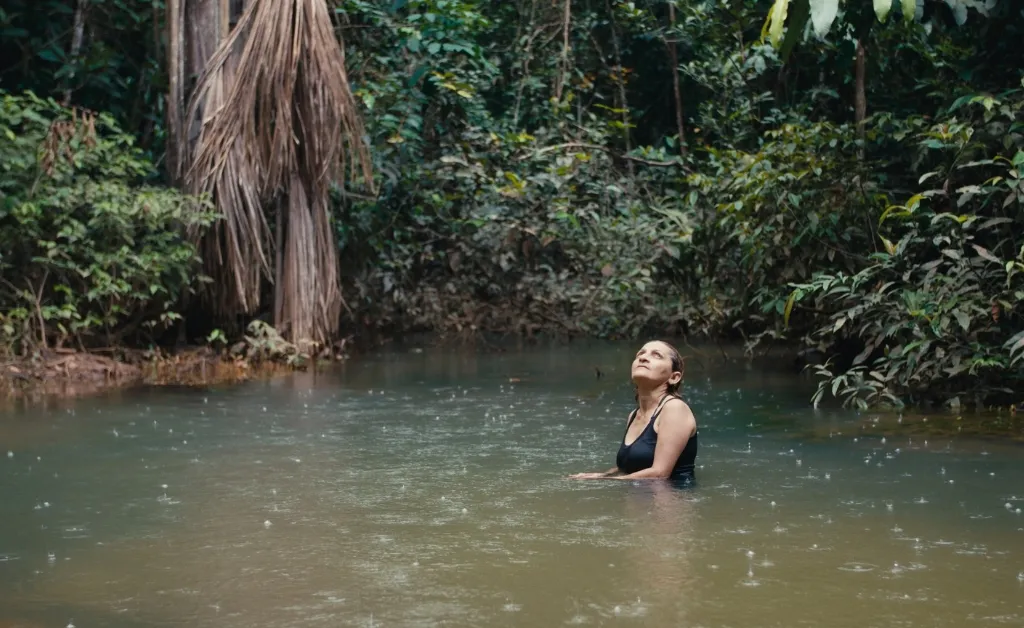
Andra nyheter

The power of people powered Public-Private Partnerships
Public–Private Partnerships (PPPs) are often discussed in terms of roads, power plants, housing, and other large infrastructure projects. But as discussed on the People’s Partnership Podcast, PPPs are...

ForumCiv’s social media accounts labelled as “extremist materials” in Belarus
Important message to our Belarusian followers. Any interaction with our content can now lead to legal consequences in Belarus. Please read the information below and take the necessary precautions for...

ForumCiv enters new strategic partnership
ForumCiv is proud to announce a new three-year strategic partnership with Sida, totalling SEK 137 million.